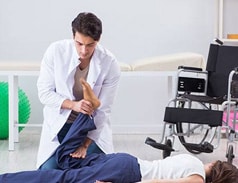April is Parkinson’s Disease Awareness Month, a time to shed light on a condition that affects more than 10 million people worldwide. Parkinson’s is a progressive neurological disorder that primarily impacts movement, causing symptoms such as tremors, stiffness, slowness, and balance difficulties. While the disease is most often diagnosed in people over 60, it is also known to affect younger individuals.
Parkinson’s disease occurs when nerve cells in a part of the brain called the substantia nigra become damaged or die. These cells normally produce dopamine, a chemical messenger that helps control movement and coordination. As dopamine levels drop, symptoms begin to appear—often gradually. The most recognizable signs include tremors, muscle stiffness, slowness of movement, and balance problems. However, Parkinson’s can also lead to non-motor symptoms such as sleep disturbances, depression, anxiety, and cognitive changes.
The exact cause of Parkinson’s is still unknown, though scientists believe a combination of genetic and environmental factors may play a role. It typically develops in people over the age of 60, but early-onset cases do occur. While there is currently no cure, treatments like medication and physiotherapy can help manage symptoms and improve quality of life.
One of the most important things we can do is encourage early detection. If you or a loved one notices changes in movement, handwriting, facial expression, or balance, don’t brush it off—talk to a doctor. An early diagnosis can lead to better symptom management and access to therapies that improve quality of life.
If you or someone you love is living with Parkinson’s disease, don’t wait—get moving. Exercise isn’t just helpful, it’s essential. Regular physical activity and guided physiotherapy can significantly improve strength, balance, flexibility, and even mood.
Whether it’s walking, stretching, cycling, dancing, or working with a trained physiotherapist, every movement matters. Consistent exercise can slow symptom progression and help you maintain independence and quality of life.
Start today. Talk to one of our capable Parkinson’s-trained physiotherapists here at Miami Physiotherapy about creating a safe, personalized exercise plan. Even small steps can lead to big improvements. Movement is medicine, and staying active is one of the most empowering choices someone with Parkinson’s can make.
Parkinson’s may change the way you move—but it doesn’t have to stop you.
Let’s move forward—stronger, together.

